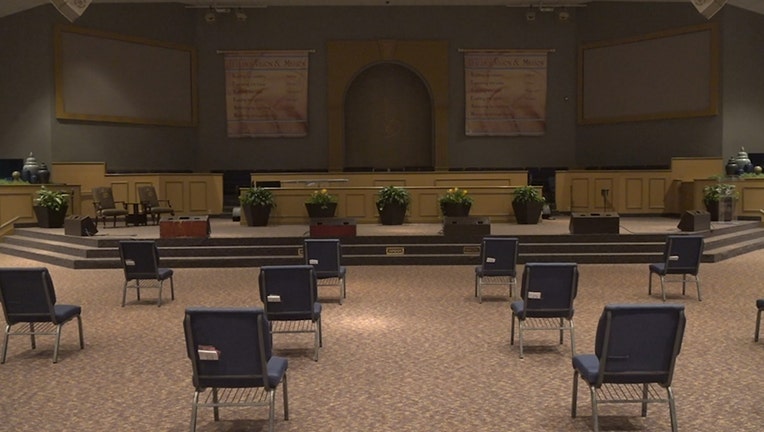How the pandemic has affected Black churches

Berean Christian Church in Georgia remains empty. (Fox News)
ATLANTA - Many African Americans celebrate Black History Month in the church. But as the COVID-19 pandemic rages, many of those churches remain closed to protect their congregations.
The parking lot at Berean Christian Church in Georgia sits empty and the sanctuary is silent.
"We've learned that this may be the new normal for a while, but we still have to minister to people," Berean's Dr. Rodney Mason said.
Usually, this church holds more than 1,500 people. But once it reopens, it will seat only 150 to reduce the risk of infection.
"Some Black churches will not open again after this virus,'" Mason said. "Some Black churches have lost membership. A significant portion of their membership has even died off."
St. Bartley Church, the oldest Black church in Alabama, closed in March 2020.
"We just went ahead and made the decision to shut down and to move to virtual," senior pastor Jaymes Mooney said.
The closure has been devastating.
"The Black church is not just a place for worship, it really is the center of the community," Mooney said. "It still is the strongest institution in the Black community."
Get breaking news alerts in the FOX 5 NY News app. Download for FREE!
Historians say the Black church first began in the mid-18th century.
"It was the lyceum, the library, it was the political center, educational center," said Dianne Stewart, a professor of religion and African American studies at Emory University. "It was the place where local elections were held during the civil rights movement."
Church may come back a bit different but it will still thrive, she said.
"They will survive because the Black church in many ways is a metonymy for Black family," Stewart said. "And Black family must survive."
But even when some Black churches reopen, those who died from the coronavirus will be missed.
"Once this pandemic is under control and we're able to worship again, some of the people who I was used to seeing every Sunday will no longer return with us," Mason said.
Both churches say they hope to reopen by Easter if the pandemic gets better. If not, they will stay closed.

